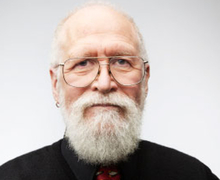Interview with Jon 'maddog' Hall
FOSSH - 2000 to 2020 and beyond!. maddog continues to pontificate

Jon 'maddog' Hall will give a talk about FOSSH - 2000 to 2020 and beyond!. maddog continues to pontificate at FOSDEM 2020.
Q: Could you briefly introduce yourself?
I started programming in 1969. I started out as an electrical engineering student after taking three years of analog electronics in high school. While working as a co-op student I took a correspondence course in how to program an IBM 1130 computer in FORTRAN, and never looked back. I switched from electrical engineering to a curriculum of half engineering, half business with a small number of computer courses, but mostly taught myself programming by reading and practicing on the computers in the electrical engineering lab. Eventually I went to work for an insurance company that was the largest commercial user of IBM equipment in the free world, and while there received an MS in Computer Science from RPI.
Over the years I have taught data processing (including OS design and compiler design), and worked for large and small companies, with the last twenty years being a consultant. I have worked on various operating systems and computer technologies, with Unix since 1980 and GNU/Linux since May of 1994 when I met Linus Torvalds and correctly predicted that GNU/Linux would have great commercial value.
I convinced Linus of the value of a 64-bit address space and making the Linux kernel even more portable (It did not take much convincing) and arranged to get him a thirty thousand dollar DEC Alpha system to do the port. I helped to put together a DEC engineering team to assist the community.
I helped to start several projects essential to FOSSH business which continue to exist today and currently I am Board Chair of the Linux Professional Institute and Co-Founder of Caninos Loucos
Q: Your keynote talk from last year’s FOSDEM was fascinating but a bit too short to cover 50 years of Unix history. What will your talk from this edition be about? Why this topic?
I started off the talk warning people that it was hard to put 50 years of history in a talk of that length, but I would rather have too much material than too little. The audience seemed to agree.
This topic (the last twenty years of FOSSH and into the future) was suggested to me by the program committee and I agreed to do it. I admit to being bad at predicting the future (other than delivery of software on CD-ROM in the early 1990s, “live” distributions as a white paper written about the same time, the emergence of GNU/Linux as a business energizer in May of 1994), but I will try.
Q: What do you hope to accomplish by giving this talk? What do you expect?
I teach and convince by using the past to see how the present exists, and to a small extent how the future will happen. I also hope that some of what I say will strengthen the use of FOSSH, and help others with convincing arguments as to why it should be used.
Q: How has the world of FOSSH changed in the last 20 years?
In the early days of FOSS (and I mean REALLY early) people wrote software for their own use, so the users and producers were the same. Today we have many more people using FOSS than write it. Android phones and even the desktop GNU/Linux system is used by many more users than people who actually write the code.
Q: 2020 marks the 20th anniversary of (F)OSDEM. What contributions has FOSDEM made to the advancement of FOSSH?
I think that FOSDEM allows developers to come together to hear about new technical things happening in the FOSS community. By continuing to be a free (of charge) conference, held on a weekend in a central European city it is a great chance for developers and users to come together.
Q: Have you enjoyed previous FOSDEM editions?
For a couple of the past years I was not able to attend FOSDEM due to pressures of other conferences, but I did attend the early FOSDEM meetings and I remember the great talks, the efforts to keep the costs low (lunch was a sandwich and a bottle of beer for one Euro) and crowded hallways.
Last year I was able do attend FOSDEM again, funded by the Linux Professional Institute, and while FOSDEM had changed and grown the elements that I liked were still present.

Creative Commons License
This interview is licensed under a Creative Commons Attribution 2.0 Belgium License.